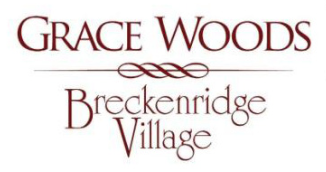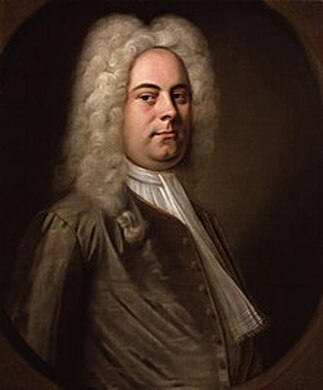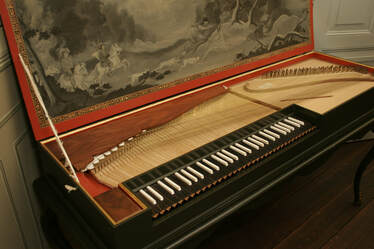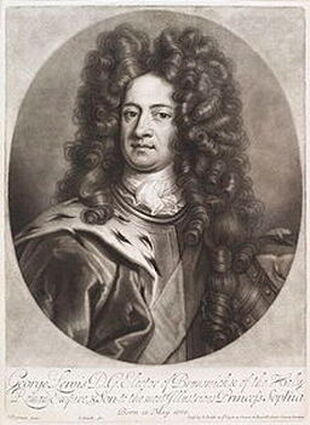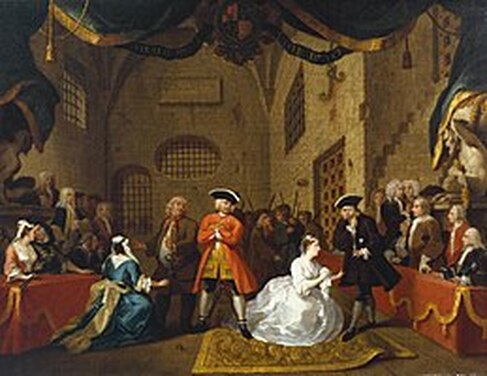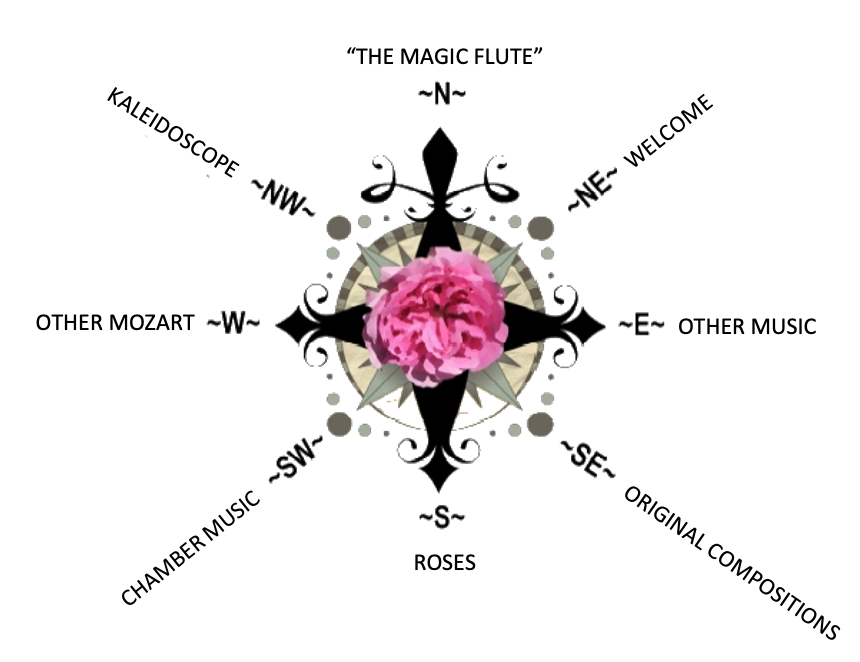- Home
- N - The Magic Flute
- NE - Welcome!
-
E - Other Music
- E - Music Genres >
- E - Composers >
-
E - Extended Discussions
>
- Allegri: Miserere
- Bach: Cantata 4
- Bach: Cantata 8
- Bach: Chaconne in D minor
- Bach: Concerto for Violin and Oboe
- Bach: Motet 6
- Bach: Passion According to St. John
- Bach: Prelude and Fugue in B-minor
- Bartok: String Quartets
- Brahms: A German Requiem
- David: The Desert
- Durufle: Requiem
- Faure: Cantique de Jean Racine
- Faure: Requiem
- Handel: Christmas Portion of Messiah
- Haydn: Farewell Symphony
- Liszt: Évocation à la Chapelle Sistine"
- Poulenc: Gloria
- Poulenc: Quatre Motets
- Villa-Lobos: Bachianas Brazilieras
- Weill
-
E - Grace Woods
>
- Grace Woods: 4-29-24
- Grace Woods: 2-19-24
- Grace Woods: 1-29-24
- Grace Woods: 1-8-24
- Grace Woods: 12-3-23
- Grace Woods: 11-20-23
- Grace Woods: 10-30-23
- Grace Woods: 10-9-23
- Grace Woods: 9-11-23
- Grace Woods: 8-28-23
- Grace Woods: 7-31-23
- Grace Woods: 6-5-23
- Grace Woods: 5-8-23
- Grace Woods: 4-17-23
- Grace Woods: 3-27-23
- Grace Woods: 1-16-23
- Grace Woods: 12-12-22
- Grace Woods: 11-21-2022
- Grace Woods: 10-31-2022
- Grace Woods: 10-2022
- Grace Woods: 8-29-22
- Grace Woods: 8-8-22
- Grace Woods: 9-6 & 9-9-21
- Grace Woods: 5-2022
- Grace Woods: 12-21
- Grace Woods: 6-2021
- Grace Woods: 5-2021
- E - Trinity Cathedral >
- SE - Original Compositions
- S - Roses
-
SW - Chamber Music
- 12/93 The Shostakovich Trio
- 10/93 London Baroque
- 3/93 Australian Chamber Orchestra
- 2/93 Arcadian Academy
- 1/93 Ilya Itin
- 10/92 The Cleveland Octet
- 4/92 Shura Cherkassky
- 3/92 The Castle Trio
- 2/92 Paris Winds
- 11/91 Trio Fontenay
- 2/91 Baird & DeSilva
- 4/90 The American Chamber Players
- 2/90 I Solisti Italiana
- 1/90 The Berlin Octet
- 3/89 Schotten-Collier Duo
- 1/89 The Colorado Quartet
- 10/88 Talich String Quartet
- 9/88 Oberlin Baroque Ensemble
- 5/88 The Images Trio
- 4/88 Gustav Leonhardt
- 2/88 Benedetto Lupo
- 9/87 The Mozartean Players
- 11/86 Philomel
- 4/86 The Berlin Piano Trio
- 2/86 Ivan Moravec
- 4/85 Zuzana Ruzickova
-
W - Other Mozart
- Mozart: 1777-1785
- Mozart: 235th Commemoration
- Mozart: Ave Verum Corpus
- Mozart: Church Sonatas
- Mozart: Clarinet Concerto
- Mozart: Don Giovanni
- Mozart: Exsultate, jubilate
- Mozart: Magnificat from Vesperae de Dominica
- Mozart: Mass in C, K.317 "Coronation"
- Mozart: Masonic Funeral Music,
- Mozart: Requiem
- Mozart: Requiem and Freemasonry
- Mozart: Sampling of Solo and Chamber Works from Youth to Full Maturity
- Mozart: Sinfonia Concertante in E-flat
- Mozart: String Quartet No. 19 in C major
- Mozart: Two Works of Mozart: Mass in C and Sinfonia Concertante
- NW - Kaleidoscope
- Contact
GEORGE FRIDERIC HANDEL’S ISRAEL IN EGYPT
by Judith Eckelmeyer
(GRACE WOODS MUSIC SESSION FEBRUARY 19, 2024)
Handel was born in Halle, Saxony, in central Germany on February 23, 1687. Attracted to music, he smuggled a clavichord (a very quiet keyboard instrument) into the attic of the house because his father had refused to allow him access to any instrument.
However, he eventually compromised with his father, who wished that he make his career in law, and began studying both law and music at the same time. His early study of organ, harpsichord, violin, and the technical aspects of music was with a local organist. He further developed his compositional practice first in Hamburg, from 1703 to 1706, and then in Italy from 1706 until 1710 when he returned to Germany to take up the position of Kapellmeister to the Elector of Hanover. The Elector, Georg Ludwig, would become King George I of England in 1714, and engage Handel (after several scheduling mishaps) as his in-house composer.
The music scene in London was busy and complex. Various members of the nobility supported composers for their personal court functions and chapel services; royal functions also required music. In addition, oratorios—dramatic music not acted out on stage—in both Italian and English, were among the early works Handel wrote in England. But above all, the aristocracy loved opera—Italian opera seria—which Handel had much experience composing while in Italy. This was a very formal theatrical style, dominated by soloists of great technical ability to enact stories of ancient mythical heroes and historical figures. The production of Handel’s operas was supported by patronage of the king and a group of the nobility, who established the Royal Academy of Music; performances were at the King’s Theater. All went well until an interloper appeared: staged works in English!
The most important of these was The Beggar’s Opera, 1728, a “ballad” opera by Gay (John, not Marvin) and Johann Christoph Pepusch. The work satirized the popular opera seriaso loved by the aristocracy and attracted a large following among the “lower people”. The music cribbed popular melodies (thus a “ballad” opera) and took to task the corruption of the aristocracy, the rich, and society’s failings. So impactful was the work’s success that support for the established opera companies (by that time there were two biggies) dwindled. Handel recognized that the future lay in oratorios.
Israel in Egypt, completed in 1739, was an early oratorio but not Handel’s first. It was immediately preceded by Saul in the same year. Both were biblical stories from the Old Testament. Unlike Saul, however, Israel in Egypt was not a continuous narrative story but a compilation of verses from Exodus and Psalms, centering on the plagues inflicted by God on the Egyptians to induce them to release the enslaved Israelites from onerous bondage. It is not entirely clear who prepared the libretto, but Charles Jennens, librettist for Handel’s later oratorio Messiah, is thought to have gathered and arranged the order of texts. Unlike so many of Handel’s oratorios, this work relies extensively on choral movements, with some interspersed arias. There is a rich variety of instruments bringing a wide range of color to the descriptive passages: 2 flutes, 2 oboes, 2 bassoons, 2 trumpets, 2 trombones, timpani, harpsichord and organ. The choir is often divided in half for antiphonal effects.
The work is in three sections. The first is a compilation of laments, the music largely reworkings of earlier pieces by both Handel and other composers (which was perfectly acceptable in Handel’s time). The second section is comprised of choral movements describing the plagues. The third is a response to the newfound freedom of the Israelites after their safe departure from bondage.
The work is in three sections. The first is a compilation of laments, the music largely reworkings of earlier pieces by both Handel and other composers (which was perfectly acceptable in Handel’s time). The second section is comprised of choral movements describing the plagues. The third is a response to the newfound freedom of the Israelites after their safe departure from bondage.
The second section contains exceptionally evocative descriptive music which Handel devised to represent the various plagues. He employed memorable devices such as a huge leap downward and back upward to show revulsion at the sight of blood filling the sources of water in the land; frogs leaping throughout the land and pharaoh’s palace, and the subsequent blight affecting the cattle; God’s command, heralded by trombones, that brings flies and lice and then locusts to invade homes and fields; fiery hailstones the pummel the scene; and “thick darkness” so deep over the land that it could be felt. Finally, with heavy “hammer strokes” In the orchestra, we hear God smite the first-born sons of Egypt. Once out of Egypt, Handel describes the Israelites being led “like sheep” with a serene pastoral Siciliano, with a swaying lilt in sharp contrast to the preceding hammer strokes of death. The section concludes with descriptions of the destruction of the Egyptian foes.
The third section is a grand paeon of thanksgiving for Israel’s deliverance by God’s hand. A number of arias (solos) intersperse the choral passages. The whole oratorio concludes with the triumphant song of Miriam, Aaron’s sister, and rejoicing by both Miriam and the people of Israel.
TEXTS
Part I:
No. 1: Chorus. The sons of Israel do mourn and they are in bitterness; all the people sigh, and hang down their heads to the ground.
Part II:
No. 1. Recitative. Now there arose a new king over Egypt which knew not Joseph; and he set over Israel taskmasters to afflict them with burdens, and they made them serve with rigor.
No. 2. Chorus and alto solo. And the children of Israel sighed by reason of the bondage, and their cry came up unto God. They oppressed them with burthens, and made them serve with rigor; and their cry came up unto God.
No. 3. Recitative. Then sent he Moses, his servant, and Aaron whom he had chosen; these showed his signs among them, and wonders in the land of Ham. He turned their waters into blood.
No. 4. Chorus. They loathed to drink of the river. He turned their waters into blood.
No. 5. Aria, alto. Their land brought forth frogs, yea, even in their king’s chambers. He gave their cattle over to the pestilence blotches and blains broke forth on man and beast.
No. 6. Chorus. He spake the word, and there came all manner of flies and lice in all their quarters. He spake; and the locusts came without number and devoured the fruits of their ground.
7. Chorus. He gave them hailstones for rain; fire mingled with the hail ran along upon the ground.
8. Chorus. He sent a thick darkness over all the land, even darkness which might be felt.
9. Chorus. He smote all the first-born of Egypt, the chief of all their strength.
10. Chorus. But as for his people, he led them forth like sheep; he brought them out with silver and gold; there was not one feeble person among their tribes.
11. Chorus. Egypt was glad when they departed, for the fear of them fell upon them.
12. Chorus. He rebuked the Red Sea, and it was dried up.
13.Chorus. He led them through the deep as through a wilderness.
14. Chorus. But the waters overwhelmed their enemies, there was not one of them left.
15. Chorus. And Israel saw that great work that the Lord did upon the Egyptians,
And the people feared the Lord,
16. Chorus. and believed the Lord and his servant Moses.
Part III.
Final chorus and solo. Sing ye to the Lord, for he hath triumphed gloriously; the horse and his rider hath he thrown into the sea. The Lord shall reign for ever and ever. I will sing unto the Lord, for he hath triumphed gloriously; the horse and his rider hath he thrown into the sea.
Part I:
No. 1: Chorus. The sons of Israel do mourn and they are in bitterness; all the people sigh, and hang down their heads to the ground.
Part II:
No. 1. Recitative. Now there arose a new king over Egypt which knew not Joseph; and he set over Israel taskmasters to afflict them with burdens, and they made them serve with rigor.
No. 2. Chorus and alto solo. And the children of Israel sighed by reason of the bondage, and their cry came up unto God. They oppressed them with burthens, and made them serve with rigor; and their cry came up unto God.
No. 3. Recitative. Then sent he Moses, his servant, and Aaron whom he had chosen; these showed his signs among them, and wonders in the land of Ham. He turned their waters into blood.
No. 4. Chorus. They loathed to drink of the river. He turned their waters into blood.
No. 5. Aria, alto. Their land brought forth frogs, yea, even in their king’s chambers. He gave their cattle over to the pestilence blotches and blains broke forth on man and beast.
No. 6. Chorus. He spake the word, and there came all manner of flies and lice in all their quarters. He spake; and the locusts came without number and devoured the fruits of their ground.
7. Chorus. He gave them hailstones for rain; fire mingled with the hail ran along upon the ground.
8. Chorus. He sent a thick darkness over all the land, even darkness which might be felt.
9. Chorus. He smote all the first-born of Egypt, the chief of all their strength.
10. Chorus. But as for his people, he led them forth like sheep; he brought them out with silver and gold; there was not one feeble person among their tribes.
11. Chorus. Egypt was glad when they departed, for the fear of them fell upon them.
12. Chorus. He rebuked the Red Sea, and it was dried up.
13.Chorus. He led them through the deep as through a wilderness.
14. Chorus. But the waters overwhelmed their enemies, there was not one of them left.
15. Chorus. And Israel saw that great work that the Lord did upon the Egyptians,
And the people feared the Lord,
16. Chorus. and believed the Lord and his servant Moses.
Part III.
Final chorus and solo. Sing ye to the Lord, for he hath triumphed gloriously; the horse and his rider hath he thrown into the sea. The Lord shall reign for ever and ever. I will sing unto the Lord, for he hath triumphed gloriously; the horse and his rider hath he thrown into the sea.
Handel's Israel in Egypt
Monteverdi Choir & Orchestra | Conductor: John Eliot Gardiner
N. Burrowes: Sopran | Ch. Brett: Counter-Tenor |M. Hill: Tenor | S. Varcoe: Bass | M. Levin: Theorbo | M. Hicks: Organ
Monteverdi Choir & Orchestra | Conductor: John Eliot Gardiner
N. Burrowes: Sopran | Ch. Brett: Counter-Tenor |M. Hill: Tenor | S. Varcoe: Bass | M. Levin: Theorbo | M. Hicks: Organ
(00:00-00:04:08) Overture: Lamentations of the Israelites for the death of Joseph
Exodus
1. "Now here arose", récitatif P. Elliott 02:13
2. "And the children of Israel sighed by reason of the bondage: And their cry..." chorus 02:38
3. "Then sent He Moses", récitatif P. Elliott 06:34
4. "They loathed to drink", chorus 07:08
5. "Their land brought", aria A. Stafford 09:26
6. "He spake the word", chorus 11:43
7. "He gave them hailstones", chorus 13:51
8. "He sent a thick darkness", chorus 16:04
9. "He smote all the first-born", chorus 19:24
10. "But as for His people': chorus 21:51
11. "Egypt was glad", chorus 26:01
12. "He rebuked the Red Sea", chorus 29:04
13. "He led them", chorus 29:51
14. "But the waters", chorus 31:17
15. "And Israel saw", chorus 32:21
16. "And believed the Lord", chorus 33:19
Moses’ Song
17. "Moses, and the children': introitus - chorus 37:01
18. "I will sing", chorus 37:58
19. "The Lord is my strengh", duo J. Knibbs & M. Troth 40:35
20. "He is my God", chorus 45:12
21. "And I will exalt him", chorus 46:02
22. "The Lord is a man of war", duo S. Varcoe & C. Stewart 48:58
23. "The depths have covered them", chorus 54:45
24. "Thy right hand", chorus 57:34
25. "And in the greatness", chorus 59:02
26. "Thou sentest forth", chorus 59:39
27. "And with the blast", chorus 1:01:42
28. "The enemy said", aria W. Kendall 1:04:44
29. "Thou didst blow", aria D. Greene 1:07:11
30. "Who is like unto Thee", chorus 1:09:35
31. "The earth swallowed them", chorus 1:11:10
32. "Thou is thy mercy", duo B. Gordon & P. Elliott 1:12:21
33. "The people shall hear", chorus 1:16:48
34. "Thou shalt bring", aria J. Clarkson 1:24:21
35. "The Lord shall reign", chorus 1:28:15
36. "For the horse of Pharoah", récitatifP. Elliott 1:28:58
37. "The Lord shall reign", chorus 1:29:24
38. "And Miriam the prophetess", récitatif P. Elliott 1:30:05
39. "Sing ye to the Lord, for he hath triumphed gloriusly ! The Lord shall reign...", 1:30:28
Exodus
1. "Now here arose", récitatif P. Elliott 02:13
2. "And the children of Israel sighed by reason of the bondage: And their cry..." chorus 02:38
3. "Then sent He Moses", récitatif P. Elliott 06:34
4. "They loathed to drink", chorus 07:08
5. "Their land brought", aria A. Stafford 09:26
6. "He spake the word", chorus 11:43
7. "He gave them hailstones", chorus 13:51
8. "He sent a thick darkness", chorus 16:04
9. "He smote all the first-born", chorus 19:24
10. "But as for His people': chorus 21:51
11. "Egypt was glad", chorus 26:01
12. "He rebuked the Red Sea", chorus 29:04
13. "He led them", chorus 29:51
14. "But the waters", chorus 31:17
15. "And Israel saw", chorus 32:21
16. "And believed the Lord", chorus 33:19
Moses’ Song
17. "Moses, and the children': introitus - chorus 37:01
18. "I will sing", chorus 37:58
19. "The Lord is my strengh", duo J. Knibbs & M. Troth 40:35
20. "He is my God", chorus 45:12
21. "And I will exalt him", chorus 46:02
22. "The Lord is a man of war", duo S. Varcoe & C. Stewart 48:58
23. "The depths have covered them", chorus 54:45
24. "Thy right hand", chorus 57:34
25. "And in the greatness", chorus 59:02
26. "Thou sentest forth", chorus 59:39
27. "And with the blast", chorus 1:01:42
28. "The enemy said", aria W. Kendall 1:04:44
29. "Thou didst blow", aria D. Greene 1:07:11
30. "Who is like unto Thee", chorus 1:09:35
31. "The earth swallowed them", chorus 1:11:10
32. "Thou is thy mercy", duo B. Gordon & P. Elliott 1:12:21
33. "The people shall hear", chorus 1:16:48
34. "Thou shalt bring", aria J. Clarkson 1:24:21
35. "The Lord shall reign", chorus 1:28:15
36. "For the horse of Pharoah", récitatifP. Elliott 1:28:58
37. "The Lord shall reign", chorus 1:29:24
38. "And Miriam the prophetess", récitatif P. Elliott 1:30:05
39. "Sing ye to the Lord, for he hath triumphed gloriusly ! The Lord shall reign...", 1:30:28
Judith Eckelmeyer © 2024
Choose Your Direction
The Magic Flute, II,28.
